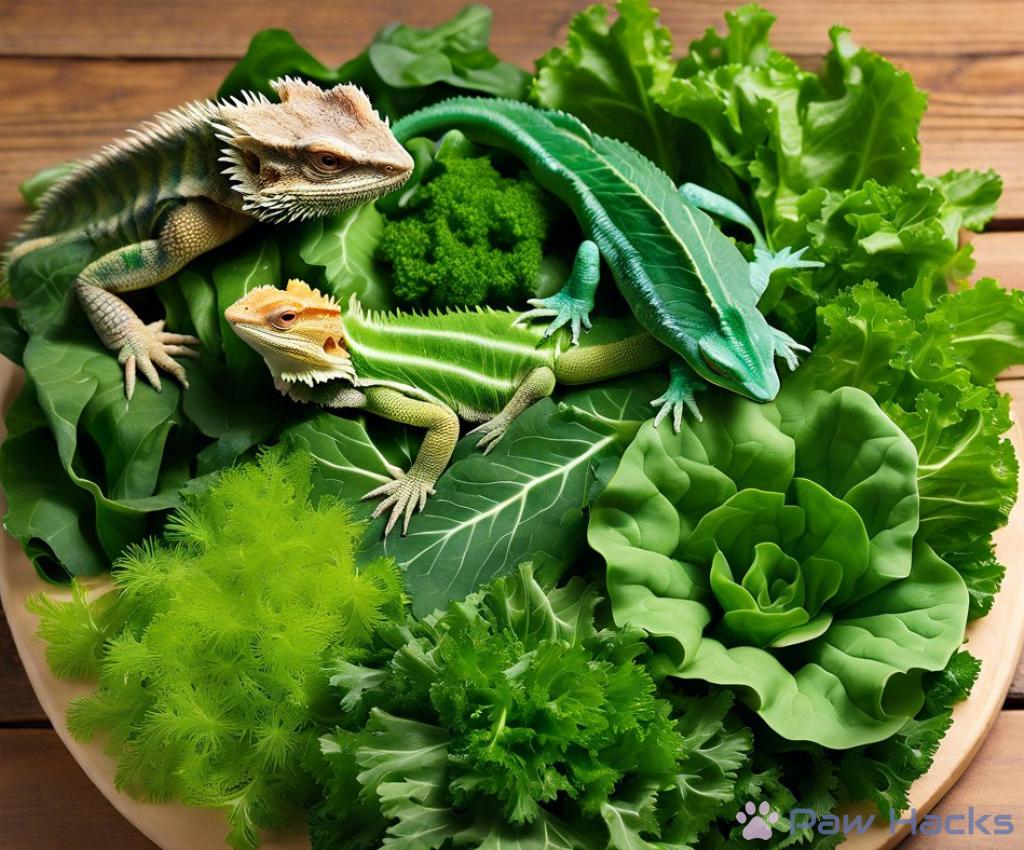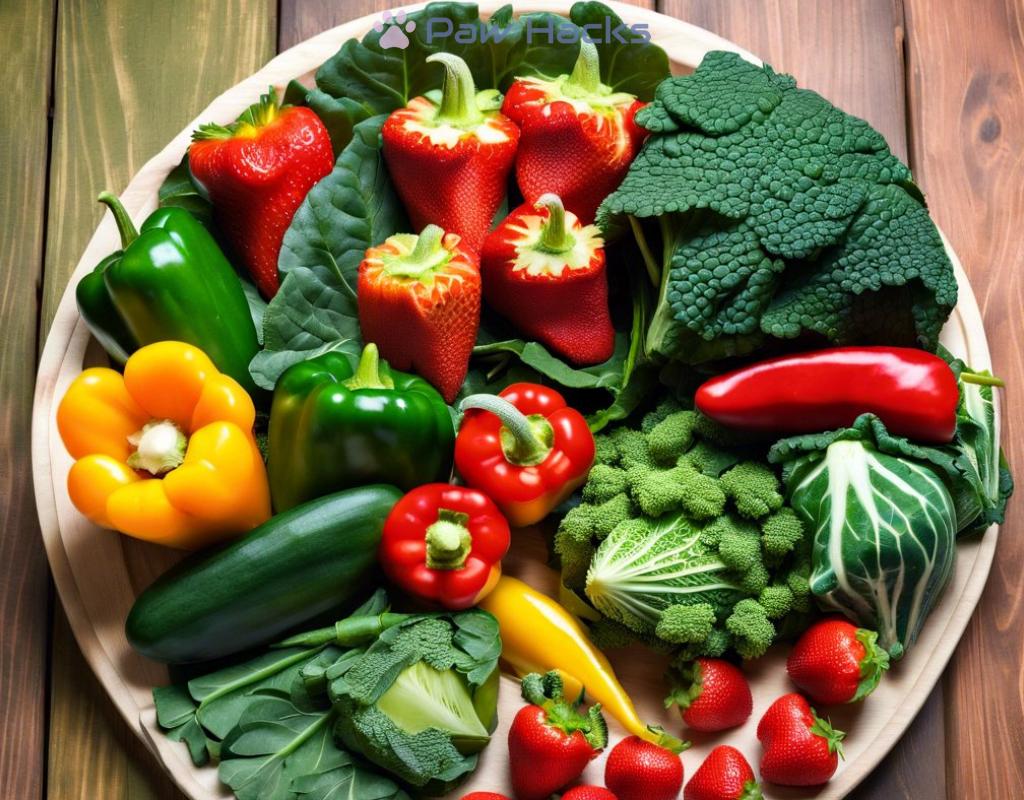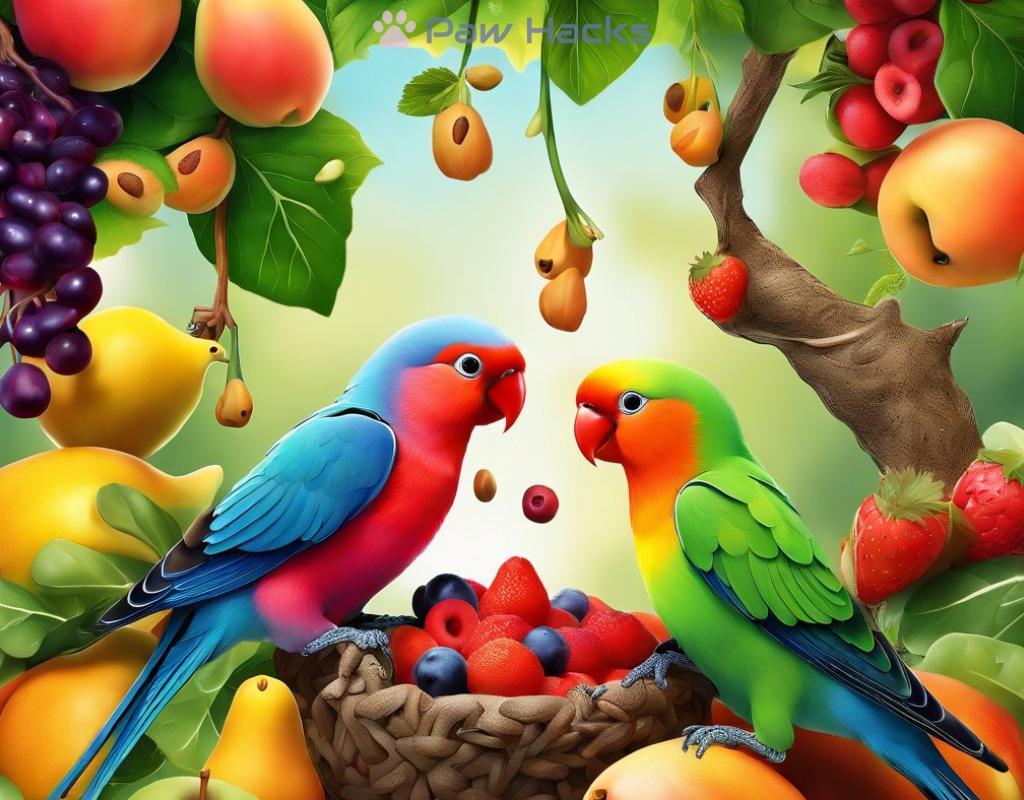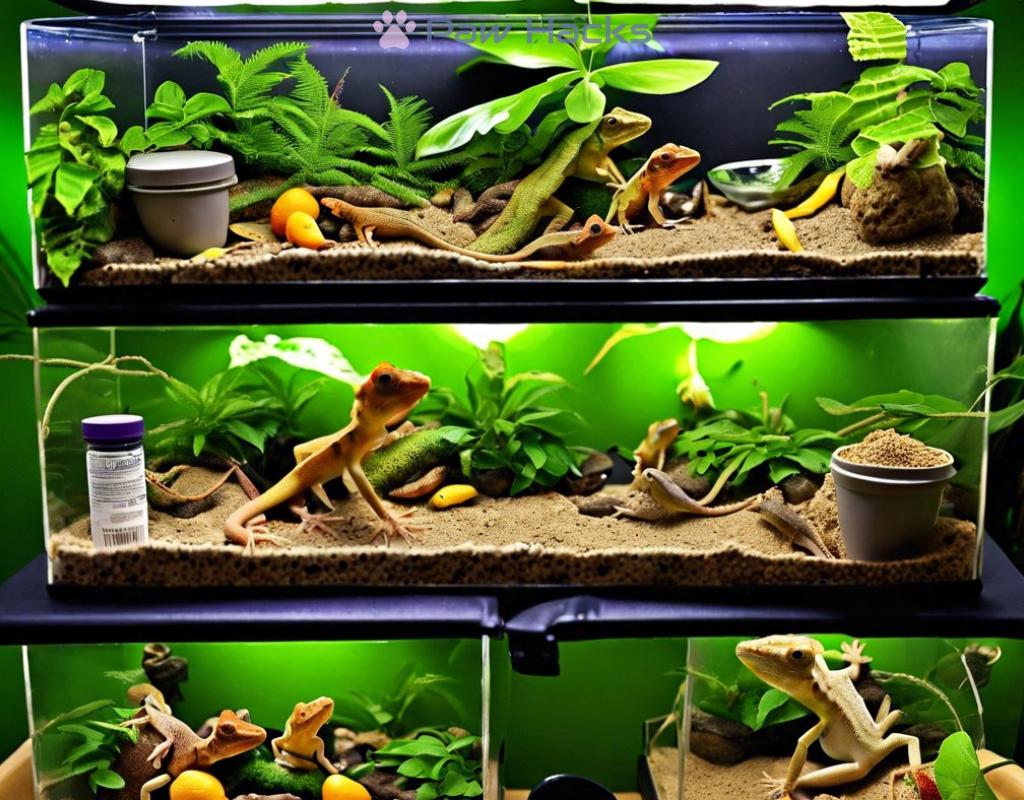Best Foods for Bearded Dragons
Nutrient-Rich Greens: The Essential Leafy Diet for Your Bearded Dragon

When it comes to keeping your bearded dragon healthy and happy, the importance of a well-balanced diet cannot be overstated. Leafy greens form the cornerstone of your dragon’s nutritional needs, providing essential vitamins and minerals that promote growth, vitality, and overall well-being. In this article, we’ll explore the best nutrient-rich greens that should be a staple in your bearded dragon’s diet.
Not all greens are created equal! Some leafy vegetables are packed with nutrients while others may not provide the necessary benefits. Below is a curated list of the best leafy greens that you should consider incorporating into your bearded dragon’s diet:
- Collard Greens: High in calcium and vitamins A and C, collard greens are a fantastic choice.
- Dandelion Greens: These are not only rich in calcium but also offer a plethora of antioxidants.
- Mustard Greens: Mustard greens are another excellent source of vital nutrients and can be a delicious treat.
- Turnip Greens: Packed with calcium and fiber, turnip greens are great for digestion.
- Swiss Chard: While it contains beneficial nutrients, it should be offered in moderation due to oxalates.
To help you better understand the benefits of these leafy greens, here’s a comparison table that outlines their nutritional content:
| Leafy Green | Calcium (%) | Vitamin A (IU) | Vitamin C (mg) |
|---|---|---|---|
| Collard Greens | 1.9 | 5000 | 35 |
| Dandelion Greens | 2.0 | 4500 | 75 |
| Mustard Greens | 1.5 | 3500 | 60 |
| Turnip Greens | 2.2 | 3000 | 50 |
| Swiss Chard | 1.0 | 4000 | 30 |
As you can see, dandelion greens and turnip greens stand out due to their high calcium content, making them particularly beneficial for your bearded dragon’s health.
Delicious Insects: The Protein Powerhouses Every Bearded Dragon Needs
When it comes to crafting a balanced diet for your bearded dragon, protein-rich insects are an indispensable component. These little critters not only serve as a source of essential protein but also offer valuable nutrients that contribute to your dragon’s growth and overall health. It’s important to choose the right insects to ensure your pet thrives and enjoys their meals.
Understanding the Role of Insects
Insects are a vital food source for bearded dragons because they provide the necessary protein to support muscle development and energy levels. Bearded dragons in the wild consume a variety of insects, and replicating this diet at home is crucial for their well-being. While many people may overlook the importance of insects, incorporating them into your pet’s diet is essential for maintaining a healthy and active lifestyle.
Top Insect Choices for Your Bearded Dragon
When selecting the best insects for your bearded dragon, consider options like crickets, mealworms, and dubia roaches. Crickets are a popular choice due to their high protein content and easy availability. They are also a great source of moisture, which can help keep your dragon hydrated. Mealworms, on the other hand, are rich in fat and should be offered in moderation to prevent obesity. Dubia roaches are another fantastic option, as they provide a well-rounded nutritional profile without the excess fat that some other insects carry. Each type of insect brings a unique set of benefits, making it essential to vary their diet to meet all nutritional needs.
Feeding Techniques and Considerations
It’s important to ensure that the insects you provide are appropriately sized for your bearded dragon, generally no larger than the space between their eyes. Additionally, gut-loading insects before feeding can enhance their nutritional value. This process involves feeding the insects nutrient-rich foods before they are offered to your pet, ensuring your bearded dragon receives maximum benefits. Lastly, always ensure that the insects are sourced from reputable suppliers to avoid any potential health risks.
Fruits and Treats: How to Safely Indulge Your Bearded Dragon’s Sweet Tooth
Every bearded dragon has its own personality, and just like us, they can develop a penchant for sweet treats. While leafy greens and protein-rich insects are critical for their diet, incorporating fruits can add variety and excitement to their meals. However, not all fruits are safe or beneficial, so it’s essential to choose wisely to keep your reptilian friend healthy and happy.
Fruits can be a delightful addition to your bearded dragon’s diet, providing essential vitamins and hydration. Fruits like strawberries, blueberries, and mangoes are packed with nutrients and can serve as occasional treats. However, it is crucial to remember that fruits should only make up a small portion of their overall diet. Too much sugar from fruits can lead to obesity and other health issues. When offered in moderation, fruits can create a stimulating eating experience that your dragon will appreciate.
When selecting fruits, always prioritize those that are safe for your bearded dragon. For instance, bananas and grapes can be tempting options, but due to their high sugar content, they should be given sparingly. Instead, focus on fruits that offer a balance of natural sugars and nutritional value. Melons are excellent choices, as they not only provide hydration but are also low in calories. Always wash fruits thoroughly before serving to remove any pesticides and ensure they are fresh. Furthermore, it’s advisable to cut fruits into small, manageable pieces to prevent choking hazards and to make it easier for your pet to enjoy their snack.
Integrating fruits into your bearded dragon’s diet should be done thoughtfully. Start by introducing one type of fruit at a time to monitor how your dragon reacts. If they show interest and digest it well, you can gradually add more options. It’s also important to balance fruity treats with their staple foods like leafy greens and protein sources. By establishing a routine that includes both nutritious staples and occasional sweet treats, you can help ensure your bearded dragon remains healthy while also indulging their taste buds. Remember, moderation is key, and keeping track of what fruits your dragon enjoys will enhance their overall feeding experience.
The Importance of Calcium: Fortifying Your Bearded Dragon’s Diet for Strong Bones
A well-rounded diet for your bearded dragon goes beyond just leafy greens and protein-rich insects; it must also emphasize the critical role of calcium. This vital mineral is paramount for your pet’s bone health and overall development. Bearded dragons are prone to metabolic bone disease (MBD) if they do not receive adequate calcium, which can lead to serious health complications. Therefore, understanding how to effectively incorporate calcium into their diet is essential.
Calcium’s Role in Bone Development
Calcium is a fundamental building block for your bearded dragon’s skeletal structure. It helps in the formation of strong bones and plays a crucial role in muscle function and nerve signaling. Without sufficient calcium, your bearded dragon may experience weakness, deformities, and other debilitating conditions. It’s vital to remember that while leafy greens like collard and dandelion greens are rich in calcium, they alone may not fulfill your dragon’s complete calcium requirements. To further enhance their intake, consider dusting insects with calcium powder before feeding. This simple addition can significantly boost their daily calcium consumption.
Balancing Calcium with Other Nutrients
While calcium is undeniably important, maintaining a balance with other nutrients is equally crucial. Too much calcium without the right balance of phosphorus can lead to health issues. Therefore, it’s important to use calcium supplements that are specifically designed for reptiles, which often take this balance into account. Additionally, ensuring that your bearded dragon has access to UVB light is essential for calcium absorption. Natural sunlight or a good UVB lamp can help synthesize vitamin D3, which is necessary for your pet to utilize calcium effectively.
Monitoring Calcium Intake
Regularly monitoring your bearded dragon’s diet will help you identify if they are receiving enough calcium. Keep an eye on their behavior and physical condition; signs of calcium deficiency include lethargy, twitching, or deformities. It may be beneficial to consult with a veterinarian who specializes in reptiles to develop a comprehensive feeding plan tailored to your dragon’s needs. Remember, a proactive approach ensures your bearded dragon remains healthy and vibrant, allowing them to thrive in your care.
Hydration Matters: Best Practices for Keeping Your Bearded Dragon Well-Watered
Just like humans, bearded dragons require adequate hydration to thrive. While many owners focus primarily on food choices, neglecting hydration can lead to serious health issues. Proper hydration supports crucial bodily functions, including digestion and temperature regulation. A well-hydrated bearded dragon is not only more energetic but also has healthier skin and a robust immune system. Therefore, ensuring your dragon receives sufficient water is an essential aspect of their overall care.
Providing fresh water daily is the most straightforward method to keep your bearded dragon hydrated. A shallow dish filled with clean, chlorine-free water should be placed in their habitat. It’s important to change the water frequently to prevent bacteria growth. Additionally, many bearded dragons enjoy drinking droplets from their environment. Misting their enclosure lightly can encourage them to drink and helps maintain humidity levels, which can be particularly beneficial during shedding periods.
Another effective way to enhance hydration is through food. Incorporating moisture-rich foods like leafy greens and some fruits can significantly contribute to your dragon’s water intake. Foods such as cucumber and watermelon are not only hydrating but also provide essential nutrients. Always ensure that these foods are fresh and cut into small, manageable pieces to facilitate easy consumption.
Monitoring the hydration status of your bearded dragon is crucial. Signs of dehydration can manifest in various ways, including lethargy, sunken eyes, and dry skin. If you notice any of these symptoms, it may be time to reassess your hydration practices. A simple method to check for dehydration is to gently pinch the skin on the back of the neck; if it doesn’t return to its normal position quickly, your dragon may be dehydrated. In such cases, offering a warm bath can help them absorb moisture through their skin. Remember, maintaining proper hydration is just as important as providing a balanced diet, ensuring your bearded dragon remains healthy and vibrant.
Share this content:



